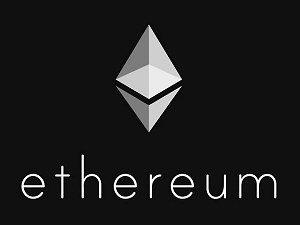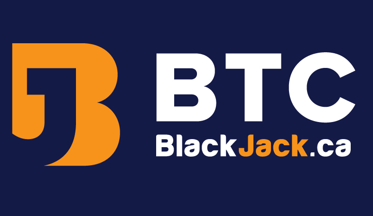ETH Casinos Canada – Buy, Sell, Trade and Play Casino Games with Ether Crypto

Ether [ETH] is the official cryptographic currency of the Ethereum Network. In many ways, it is similar to Bitcoin, and yet its creative vision is so very different. Ether is a decentralized, open source crypto currency. It is capable of all the things Bitcoin and analogous altcoins are capable of. However, there’s something ETH has that BTC doesn’t, and that’s smart contract functionality.
The Ethereum network was specifically designed to facilitate programmatic, immutable contracts – known as “smart contracts” – with the native currency, Ether, available as the default payment. Not everyone who deals in ETH uses its smart contract functionality. As I said, it comes preloaded with all the general perks of standard digital monetization.
Some love ETH for its high trading volume. After all, it’s one of the largest crypto commodities in the world in terms of market capitalization, second only to Bitcoin. Others prefer the speed and convenience of ETH as a cheaper way to move money across the globe. If you’re reading this page now, odds you’re considering using Ether to play online casino games like blackjack, video poker and slots. Whatever your purpose, we’re here to help.
The following is a primer of sorts, meant to teach you everything you need to know about buying, selling, bartering and yes, even gimbling online with ETH. We’ll start by comparing and contrasting Ether and Bitcoin, so you can see just how comparable these two coins are. Then we offer a brief history lesson, and a lot more useful knowledge.
Bitcoin vs. Ether – Compare & Contrast
Remember in grade school, when you had to read a short story and fill in a “compare and contrast” chart? You know the ones, with a central column to state what the two entities have in common, and individual columns to either side for their unique qualities? Yeah, that’s exactly what this next table is. Brings back all sorts of warm, fuzzy, “when will I ever need this in real life” memories, doesn’t it? Enjoy 🙂
| Bitcoin [BTC] | BTC & ETH | Ether [ETH] |
|
|
|
History of Ethereum – Meeting Obligations in a Digital World
Ethereum was the brainchild of one of its core creators, Vitalik Buterin. A computer programmer, Buterin was just 17 years old when he got involved with Bitcoin, co-founding Bitcoin Magazine in 2011. It was during this time that he began to envision something far greater than the capabilities of Bitcoin and the nascent altcoins that were just emerging.
Burterin once said he felt like Bitcoin developers “weren’t approaching the problem in the right way.” He felt they were taking “a sort of Swiss Army knife protocol” to solving individual applications. Buterin’s imagination led him to write a white paper in 2013, describing a platform that went far beyond financial use cases. That paper would lay the groundwork for the Ethereum Network, and its native crypto currency, Ether (ETH).
Buterin’s white paper was impressive enough that he and his fellow co-founders had no trouble selling Ethereum Tokens (Ether) to raise funds for the project. In 2014, they raised $18 million; more than enough to pay for the 2015 live release of the first Ethereum platform, Frontier. It was an instant success, experiencing rapid growth right out of the gate.
ETH – A Smart Crypto for Smart Contracts
Ethereum revolutionizes the digital coin market by providing one thing Bitcoin and altcoins can’t – the ability to record executable files. Bitcoin’s blockchain ledger documents transactions. It is a means of keeping records. The Ethereum network gives its blockchain the ability to incorporate executables. Why does it matter? Because once a specific criteria is met – such as a service being completed – a secondary action can be triggered – such as releasing an ETH payment for said services. This is how smart contracts work.
Think of the Ethereum network as having the ability to perform as an escrow intermediary. When a house is being bought through a real estate agent, the down payment, closing costs, taxes and fees all go into an escrow account. Once both parties – buyer and seller – complete all their obligations and sign the necessary paperwork, the real estate agent will release all the payments in the escrow account. Thus, Ethereum’s smart contracts solve a very expensive problem in the business world, omitting the need for costly intermediaries and transaction fees.
Security Breech Divides Ethereum into Dual Blockchains
It didn’t take long for the Ethereum community to suffer from the same setbacks as other digital tokens. In 2016, a security breach enabled an anonymous hacker to steal US$50 million worth of Ether. The security of the system immediately came into question, culminating into a great divide among the Ethereum community. The end result was its crypto being splitting into two separate blockchains – the original token, (now Ethereum Classic [ETC]), and a new token (retaining the original name, Ether [ETH]).
ETH Soars, Leaving ETC in the Dust
The separation between these two cryptos was virtually instant. In 2017, the new ETH became so famously popular, its value rose a staggering 13,000%. In January 2018, it topped four-figures for the first time. Following a crypto market-wide cooling-off period from 2019-2020, ETH took off once more in 2021, peaking at nearly US$4.4k.
As far as market capitalization goes, the ETC fork was a failure in comparison to its ETH successor. While it has its devout followers, ETC has only achieved a market cap of about $7 billion, priced at little over US$50 (at time of writing). The progressive Ether token, on the other hand, has sky rocketed. It’s currently capped at more than $423 billion, and selling at over US$3,500.
Rating the Anonymity of Ethereum Crypto
Ethereum is not entirely anonymous. Like Bitcoin [BTC], Bitcoin Cash [BCH], Litecoin [LTC] and a slew of other altcoins, ETH is what the crypto community likes to call pseudo-anonymous.
Every ETH transactions records as a long alphanumeric strain. To the untrained eye, it’s nothing more than a mind-numbing succession of numbers and letters that don’t appear to mean anything. In reality, those numbers and letters point directly to the crypto tokens in transfer, as well as their origin and destination (i.e. digital wallets).
Anyone with enough knowledge and time on their hands can trace each and every token back through the blockchain and, more often than not, directly to its source. The IP addresses involved in a transaction can be traced. If you use a debit card or bank account was to move that token, an in-depth investigation will uncover it, pointing directly to its owner.
Long story short, if you’re planning to use crypto for any purpose in which you wish to remain 100% anonymous, Ether isn’t the choice for you. Might I suggest genuinely private tokens, such as Monero [XMR] or Verge [XVG]?
How to Buy and Sell Ether [ETH]
If you’d like to join the countless members of the Ethereum community who buy, sell and barter in Ether, you’ll be glad to know you’ve got a lot of options. You can buy it from pretty much any crypto exchange, centralized or otherwise. You can also trade directly with other members of the Ethereum community. If you’d rather purchase in person, you can swipe your debit card at the nearest Bitcoin ATM.
Before you do any of these things, you’ll need a way to store your ETH tokens. Since you can’t hold crypto in your hand, you’ll have to set up a digital wallet, so we’ll start there.
Choosing an Ethereum Wallet
An Ethereum wallet is a virtual wallet that it comes in the form of an application for your desktop or mobile device. It grants access to your Ether tokens, kind of the way an online banking website or app gives you access to your bank account. Through your wallet, you can view your Ether balance and transaction history, send Ether, and connect to other ETH-supportive applications.
Some wallets have more features than others, so it’s important to be picky when choosing which Ethereum wallet would best suit your needs. Our editor’s pick goes to Guarda Wallet, as it offers a desktop and mobile app, web access, exchange and P2P crypto trading, plus storage of 50+ different coins and tokens. But don’t take our word for it. The Ethereum Community provides a great assessment service to help you pick the right wallet for you.
Buying Ether from an Exchange Service
As the world’s second largest crypto on the market, you’ll find there are plenty of platforms that offer ETH trading. Every crypto exchange in existence lists ETH on its menu ; both the centralized and decentralized varieties. For reference, a centralized excahnge is one that deals in all financial commodities, whereas a decentralized exchange (DEX) deals only decentralized financials (DeFi; aka crypto currencies).
Which type of exchange works best for you – well, that’s something you must decide for yourself. If you only want to purchase ETH for bartering purposes, such as depositing to a crypt casino account, all you need is an exchange that either comes with a personal wallet, or the option to transfer your ETH into your own personal wallet. If you want access to a variety of crypto, and/or traditional markets, you’ll need to look for something broader.
Buy Ether Online from Other People (P2P)
The Ethereum community is famous for peer-to-peer (P2P) trading. Normally, P2P crypto trading is discouraged, unless you know and trust the person you’re trading with, because once someone releases their side of the payment, there’s no guarantee the other party will fulfill their end of the bargain. The Ethereum network puts such security issues to rest, thanks to its implementation of smart contracts. Both parties must release their agreed upon obligation before the contract is complete (i.e. a virtual escrow account).
The easiest and safest way to participate in P2P ETH trading is to do so through a decentralized exchange service, a.k.a. DEX. Users can offer up whatever they want to sell. If you want what they’re selling, and have a payment method they’re accepting, you can buy it. Likewise, you can offer up what you want to sell for others to consider.
The number one DEX, recommended not just by us, but by Ethereum.org, it Localcryptos.com.
Get ETH from a Bitcoin ATM
Not surprisingly, Canada is teeming with Bitcoin ATMs! More than 2,000 of them span the Great White North to date. Best of all, each and every one of them affords the chance to purchase Ether (as well as Bitcoin and Litecoin). You’ll need a mobile crypto wallet with a QR code to complete the transfer. The only downside is that they can charge some pretty hefty commission fees, so make sure you’re willing to pay the price before you swipe your debit card.
Gambling Online with ETH Casinos Canada
Like most major cryptos, you can use Ether to bet on casino games online. There are many crypto casinos out there accepting ETH deposits from Canadian players. However, you might be surprised to find that – despite Ether’s #2 position in crypto market capitalization – only about 50% of Canada-facing crypto casinos accept ETH payments.
You would think the world’s second most popular crypto would be more widely available for gambling online, but let’s not forget that the Ethereum network wasn’t made to do what Bitcoin and other altcoins were designed for. Those digital tokens were meant for mainstream buying, selling and bartering in a decentralized environment. The Ethereum platform and its Ether token were specifically designed for facilitating smart contracts. So, while ETH is just as viable as any other major crypto for online casino gaming, it may not be the most practical choice.
